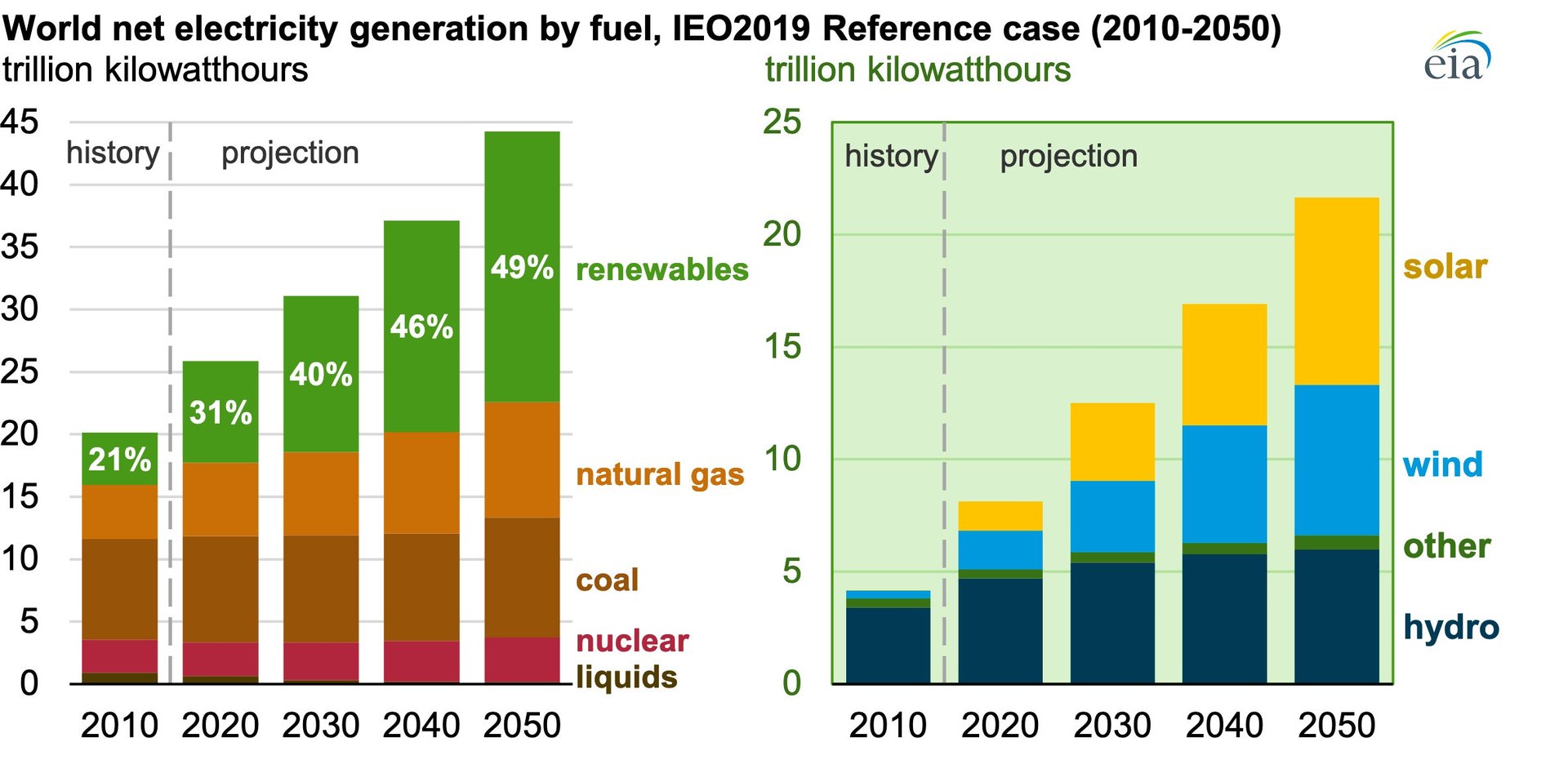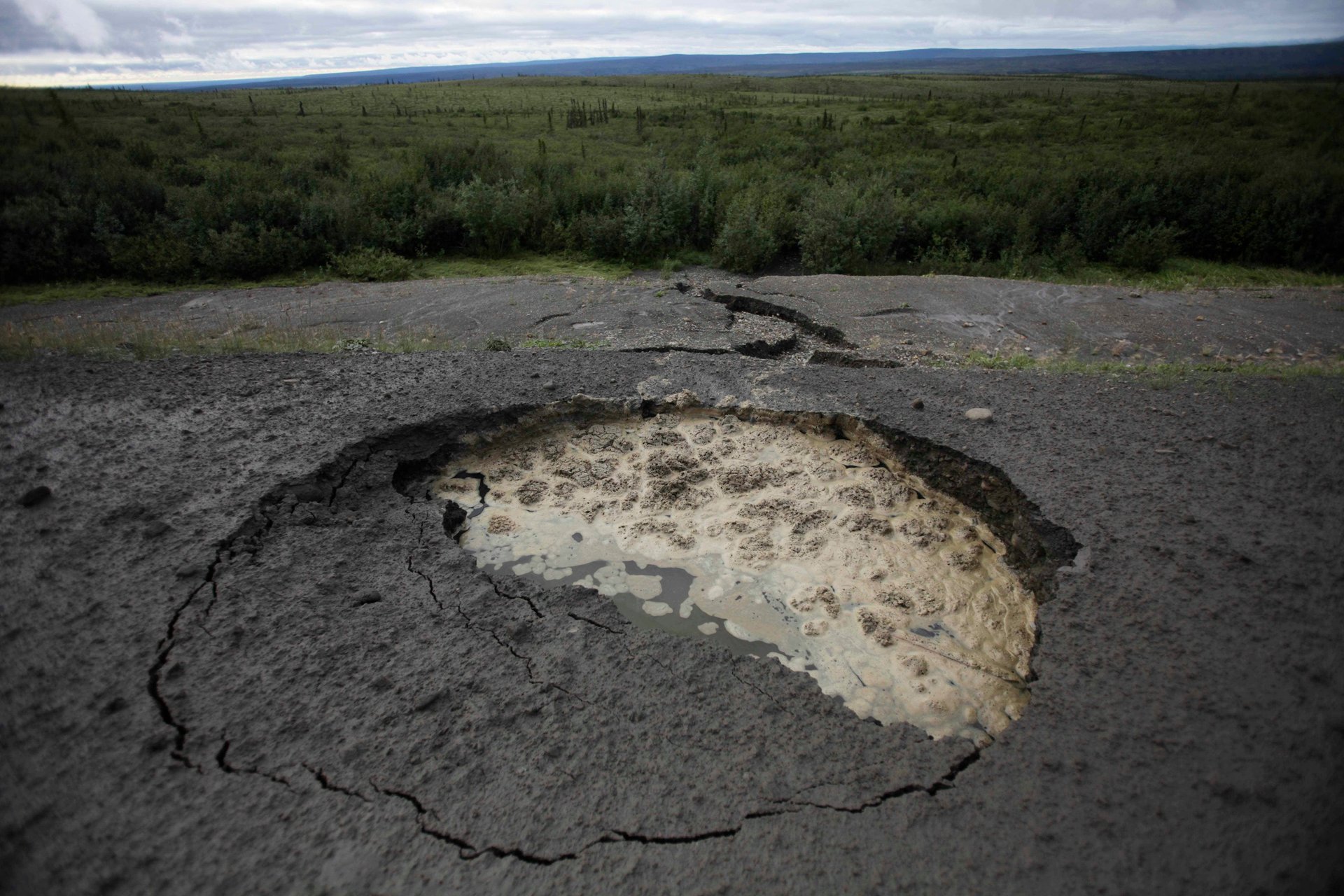The Race to Zero Emissions: tidal turbines, HFCs, and climate refugees
Welcome back. There was plenty of climate talk as global leaders assembled at the annual World Economic Forum in Davos last week, but most of the action was back at home—wherever home might be. Here’s what happened over the past week that helped or harmed the world’s chances of cutting greenhouse-gas emissions to zero.

Welcome back. There was plenty of climate talk as global leaders assembled at the annual World Economic Forum in Davos last week, but most of the action was back at home—wherever home might be. Here’s what happened over the past week that helped or harmed the world’s chances of cutting greenhouse-gas emissions to zero.

Decreases emissions
1️⃣ Arizona’s largest utility says it plans to stop burning fossil fuels for electricity by 2050. Arizona Public Service, which serves 2.7 million people, said it had taken a “hard look” at its plans after spending millions defeating a renewable energy ballot initiative in 2018.🤔
2️⃣ 🇨🇳 China is banning some single-use plastics. The policy (in Chinese) will prohibit non-degradable plastic bags at supermarkets, shopping malls, and food delivery services by the end of 2020. France, Thailand, and New Zealand are pursuing similar policies.
3️⃣ Spain slashed its coal consumption by 70% last year. The country, one of more than two dozen nations to declare a “climate emergency,” is now on track to ditch the fuel entirely by 2027, ahead of schedule. 🏭
4️⃣ The “flight shame” movement is reviving overnight rail travel in Europe. Some passengers are switching from budget airlines to rail services, while French, Dutch, and German lawmakers mull bans on short domestic flights better served by trains. 🚄
5️⃣ Tidal power is here. A perennial prototype technology, tidal turbines at the MeyGen array off the coast of Scotland generated 13.8 gigawatt hours of electricity last year, a new record.
Will we still be burning coal in 2050?

By the year the Paris accords call for eliminating greenhouse gas net emissions, the US Energy Information Administration estimates coal and natural gas will be providing just under half the world’s electricity generation. Countries without policies to reduce carbon dioxide emissions (Eurasia, especially) are projected to see little increase in renewables despite their cost competitiveness. “Without policy incentives,” the report states, “growth in generation from renewable sources is limited in regions with slow demand growth.”
Net-zero (for now)
1️⃣ Prime Minister Boris Johnson says the UK will stop funding coal abroad. But that doesn’t include oil and gas. The Guardian reports at a recent UK-Africa summit, 90% of the energy deals (almost £2 billion) were for fossil fuels. 🤷♀️
2️⃣ The World Economic Forum sent a letter to company leaders at Davos (many of whom arrived on one of 1,500 or so private jets) asking them to zero out emissions by 2050. 🛩 Only a few major commitments have come out of the elite enclave.
3️⃣ Climate scientists are more confident about the pace of warming over the next century, forecasting 3°C warming in a business-as-usual scenario. 💥 While that makes catastrophic scenarios seem less probable, it also means milder impacts are less likely.
4️⃣ Tropical forests are losing their ability to store CO2 as deforestation accelerates. But northern boreal forests could be picking up some of the slack with increasing carbon storage, according to a new study in Nature Ecology and Evolution.
5️⃣ European banks will face climate change stress tests. The Dutch government is following the lead of central bankers in England and France by reviewing how well banks incorporate environmental risks into their internal models.
Climate refugees may not go home again
A United Nations human rights committee ruled that governments cannot force refugees fleeing climate disaster to return to their home countries. The case didn’t end well for Ioane Teitiota of the Pacific island nation of Kiribati, who brought the case. The UN affirmed New Zealand’s decision to reject Teitiota’s claim for protective relocation, noting that Kiribati had time to relocate its inhabitants despite the fact that “sea level rise is likely to render the republic of Kiribati uninhabitable [within] 10 to 15 years.” But in a part of the ruling with profound implications for future claims, the court said it would be a human rights violation to force refugees back: “the effects of climate change in receiving states may expose individuals to a violation of their rights … thereby triggering the non-refoulement obligations of sending states.”

🔼 Increases emissions
1️⃣ The Arctic is falling apart. The latticework of permafrost ice holding the Arctic together is melting fast, emitting greenhouse gases, and putting more than 2.5 million square miles at risk. 🥶
2️⃣ India and China said they had nearly eliminated emissions of the potent greenhouse gas HFC-23 in 2017. But the journal Nature Communications reports record high concentrations of the hydrofluorocarbon refrigerant in the atmosphere. 🔍
3️⃣ Where are all the electric car buyers? Despite the arrival of 45 new electric models last year, annual sales fell 6.8% to just 325,000 in 2019. That represents only 2% of US car sales. 🚙
4️⃣ China’s aviation sector will emit more CO2 than any country except the US this year, estimate researchers in the journal Energy Policy. By 2050, emissions may increase by a factor of four. 🇨🇳 ✈️📈
5️⃣ Fossil fuel companies are investing just 1% of their capital expenditures outside their core business compared to 5% in most industries, according to the International Energy Agency (IEA). It suggests the oil and gas industry is making less-than-minimal effort to prepare for a low-carbon world. 🤦🏼♀️
Stats to remember
As of January 26, the concentration of carbon dioxide in the atmosphere was 412.96 ppm. A year ago, the level was 410.96 ppm.
For Quartz members
Fears of a looming recession have followed the world into 2020. “The structure of the global economy has changed in ways we still don’t understand,” reports Quartz’s Gwynn Guilford. This week’s state of play demystifies the risks facing markets in 2020 and tells you what could be behind the next global crisis.
Have a great week ahead. Please send feedback and tips to [email protected].